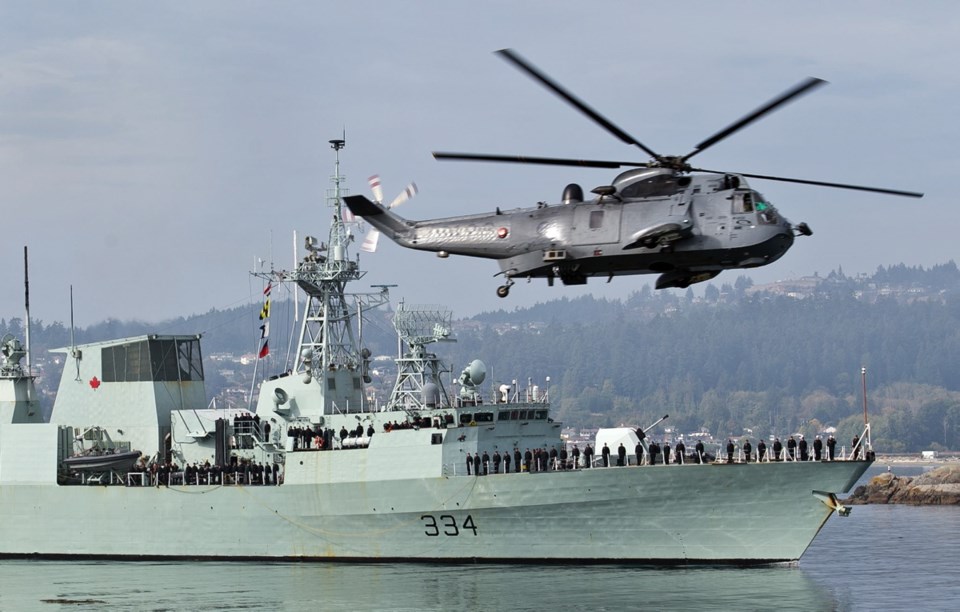Canada’s defence minister will be in Esquimalt on Friday to mark the end of the multi-billion dollar program to modernize and upgrade 12 navy frigates.
HMCS Regina, the final of five upgraded on the West Coast, will be officially transferred back to the Royal Canadian Navy. Dignitaries will include Defence Minister Harjit Sajjan and Rear-Admiral Gilles Courturier, commander of Maritime Forces Pacific.
The event signifies more than the successful wrap up of a complex program. The work was a major driver in the resurgence of the once-beleaguered shipbuilding sector in British Columbia.
“What it really means is a real future in the shipbuilding industry again,” Bill Morrison, then the business agent for Local 191 of the Boilermakers Union, said in 2008 when the contract was announced.
B.C.’s shipbuilding industry had gone through boom and bust times, when the booms might see workers on the job for a few weeks at a time.
HMCS Calgary was the first frigate into Victoria Shipyards for a 12-month refit and HMCS Regina was the final one. Other frigates that came through were HMCS Winnipeg, Calgary and Ottawa.
The $351-million contract was welcomed in 2008 as the largest in Victoria Shipyards’ history. The yard’s parent company is North Vancouver-based Seaspan ULC, also owner of Vancouver Shipyards and Vancouver Drydock.
Investment in modernizing and extending the life of Canada’s 12 frigates, including seven on the east coast, gave workers confidence in their future, Morrison said. It allowed them to make plans and buy products such as new vehicles and homes.
Total cost for refits on the dozen frigates is set at $4.3 billion, according to Department of National Defence documents. Lockheed Martin Canada’s portion was $2 billion for combat system integration and support. Seaspan and Irving Shipbuilding Inc., in Halifax, together came in at
$1.2 billion for the mid-life refits for the vessels. Various contractors were paid $1.1 billion for other projects.
Victoria Shipyards has lined up both government and private-sector jobs that are keeping hundreds of workers on the job.
It is a sub-contractor for upgrading Canada’s submarines, which started about six years ago and is anticipated to conclude in 2023, according to Seaspan’s website.
Victoria will also do some of the final work, such as finishing details and sea trials on large federal vessels being built in Vancouver for the national shipbuilding program.
The latest major job to pull into Victoria Shipyards is the Celebrity Millennium cruise ship. Once its 14-day refit is complete, the Crystal Serenity will arrive for a 10-day refit.
Cruise ship contracts normally run in the millions of dollars.
Each of the cruise ships is expected to create work for 350 to 400 people.



